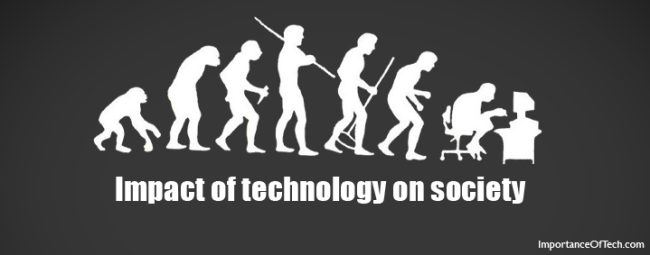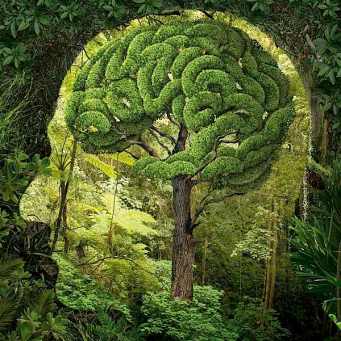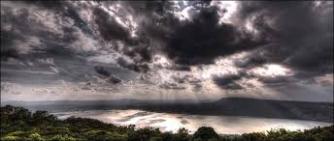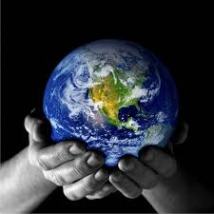
Yesterday in one of my classes we ended with a discussion about whether technology is contributing to a decline in human civilizations or is beneficial. The loudest in the class, predictably, had the strongest opinions, coming down on either side of the argument: technology is destroying us and technology is mostly beneficial. I think it’s more about how we use it than if we use it.
There is now denying that technology can be incredibly beneficial. Not only life changing but also life saving, just look at the advancement of medical technology over the last fifty years. It makes our lives easier; GPS, cell phones, smart phones, Google. It makes our lives more entertaining; iPods, iPads, Kindles, TV, Netflix, Wii, etc. Technology is great. I, personally, love my computer, my car, and the ability to text people in another state.
Let’s take a few examples starting with communication technology. Phones are, frankly, a wonderful invention. Being able to talk to someone across town, across the country, or across the world, what’s not to love? Now people living thousands of miles away from friends and families can keep in regular contact with them. And now there’s texting, not to mention all the other stuff, non-communication related, that you can do with a smart phone; check the weather, check Webster.com, see the latest news, play Angry Birds (or whatever is popular these days, I don’t have a smartphone unfortunately); it’s like something out of StarTrek. So, where’s the problem you might ask? Some would argue that we rely too much on our cell phones, rely too much on texting and that in doing so we are losing the ability to hold a normal conversation with people, or write a full sentence with proper spelling. I would say that they have a point, a very generalized point. There are some people that write school papers in text speak, though, I’m inclined to believe that these people are probably idiots anyways and that has little to do with their overuse of texting. On the conversation aspect of the argument I feel that with time it has only gotten worse. I have, on an increasingly regular basis, observed groups of friends at the mall, at restaurants and coffee houses, at school, and at the zoo, spending more time staring at their phones than talking to the person standing or sitting next to them. Now, I personally don’t believe that there is anything wrong with texting your friends, playing games, or looking something up on your phone, it’s when it comes to the exclusion of the real world that it becomes a problem. This is where the how you use technology comes into play. Or in this case, I guess, how much.
Now we come to computers and the Internet (Facebook in particular), iPads, TV, gaming systems (any of them). It’s great that we have near limitless entertainment and information literally at our fingertips. We have the potential to be more informed than ever before, however, few people are more informed. The Internet is full of crap (sorry but it’s true, weird, slightly disturbing crap. And celebrity gossip), for every good news article there is probably some idiot Tweeting their every move or posting a picture of their lunch. The issue here is how you use the potential information out their, what you type into the search engine and what you chose to look at, and how much time you spend staring at your computer screen in substitute for human interaction and time outside.
We live in a technological world. We are more connected than ever before, through various mediums (TV, movies, facebook, texting, Skype, newspapers (or more likely news websites), Twitter, e-mail, Google). The world, consequently, has become smaller. Distance doesn’t matter as much if all you have to do is hit ‘send’ to say hello or ask a question; not to mention the transportation technology: trains, planes, and automobiles. We can get from point A to point B faster and, theoretically (other than the security lines at airports, or congested highways into cities), easier than during any other era of human history.
All these things are good right? However, there are some definite drawbacks to all of this technology. Pollution from cars, greenhouse gases, smog, noise, and dependence on non-renewable fossil fuels, have become of increasing concern in the last several decades. Then there is the question: are communication technologies making us more or less social? Are people spending too much time texting and not enough time actually talking; and in doing so are we missing something, missing cues, miscommunicating altogether? Have we started to lose social skills and forget polite interaction? Or is this just the next step in societal evolution? Are we too dependent on our computers, TVs, iPhones?
There are times I think we are; that if anything every happened to our cell towers or the Internet ever went down that we would be completely lost, unable to function. There are some people I’ve met that I’m not sure can have a real, intelligent conversation with someone without checking their phone every five minutes, and, God forbid, the battery dies.
I believe that it’s not a matter of whether technology is good or bad, I don’t think that things are that black and white. It’s not about if you use it or if you have it. It’s how you use.






